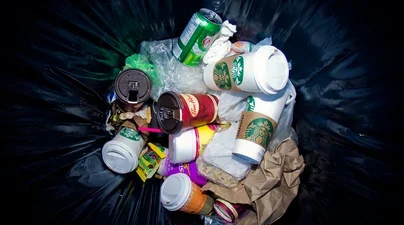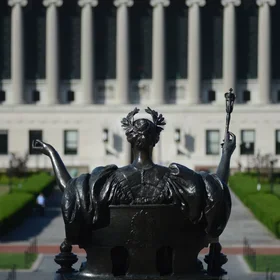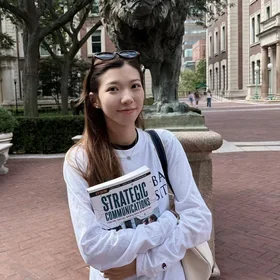By Conor O’Brien, MPA student at Columbia SIPA; Student in M.S. in Sustainability Management Opinion Writing Workshop
Irish environmentalists are changing the status quo for a cup of joe.
Ireland recently announced its plan to introduce a 20-cent tax on disposable cups, designed to incentivize the use of reusable receptacles and reduce the estimated half-million cups that Irish consumers currently toss in the bin each day. It’s been dubbed the “latte levy.”
This kind of sustainability tax is far from new in Ireland. Shortly after a similar 15-cent tax on disposable plastic bags was introduced in 2002, use of the bags fell by a remarkable 94 percent.
It’s time we reassess the price of convenience in America. Walk into practically any coffee shop in the U.S. today, and you’ll be greeted by an array of brightly colored single-serve cups in which beverages are readily served—and even more readily discarded.

This wasn’t the case when I was growing up in Ireland in the late ’90s. As the son of an environmentalist, I had a childhood that involved rice stored in bags my mother fashioned out of old curtains, used jam jars storing all manner of curiosities, and canvas shopping totes arranged haphazardly in the closet. Although my aunts and uncles often scoffed at my mother’s disdain for the disposable, it was my normal.
As an adult, I do my best to live up to these childhood ideals—namely, to use what I have. Passively watching my mother restitch my torn jeans for the third time, however, is much easier than putting her lessons into practice. In reality, it’s quite hard to give up convenience for conservation.
Even while a student in Claudia Dreifus’s opinion-writing course offered at the M.S. in Sustainability Management program at Columbia University School of Professional Studies, I give in to the siren call of the disposable cup all too often. Sustainability studies at Columbia pose difficult but necessary questions about issues of consequence, and Dreifus’s class taught me how to think and report critically on climate policy.
The act of being confronted with a tax that asks “Do you really want to do this?” invites each of us to consider our environment more deeply.
Apparently I’m not the only one succumbing to this temptation: Starbucks alone produces 4 billion disposable coffee cups a year. If we are to surface from underneath this sea of green-lidded containers, we need to make it easier to caffeinate sustainably. And as reuse becomes easier, consumers, generally inclined to take the path of least resistance, will follow suit.
Sustainable models can also offer dividends to businesses. Since transitioning entirely to reusable cups in February 2023, for example, one Dublin coffee shop has seen an 8 percent increase in sales.
So if you too struggle remembering to pack your reusable cup each day, try to imagine the mountains of coffee cups to which you are contributing, or my mother’s scolding—whichever is more likely to spur you on.
Views and opinions expressed here are those of the authors and do not necessarily reflect the official position of Columbia School of Professional Studies or Columbia University.
About the Sustainability Management Program
The Columbia University M.S. in Sustainability Management program, offered by the School of Professional Studies in partnership with the Climate School, provides students cutting-edge policy and management tools they can use to help public and private organizations and governments address environmental impacts and risks, pollution control, and remediation to achieve sustainability. The program is customized for working professionals and is offered as both a full-time and a part-time course of study.
About the Class
In the fall, Claudia Dreifus, an instructor in Columbia's M.S. in Sustainability Management program and one of the world's leading science interviewers, teaches a special class dedicated to opinion writing. Dreifus designed her courses to “teach science and sustainability students how to do science journalism, and perhaps they could get to tell their own stories in their own voices.” Alums have been published in publications including The New York Times, Science Times, Science, and BuzzFeed.


